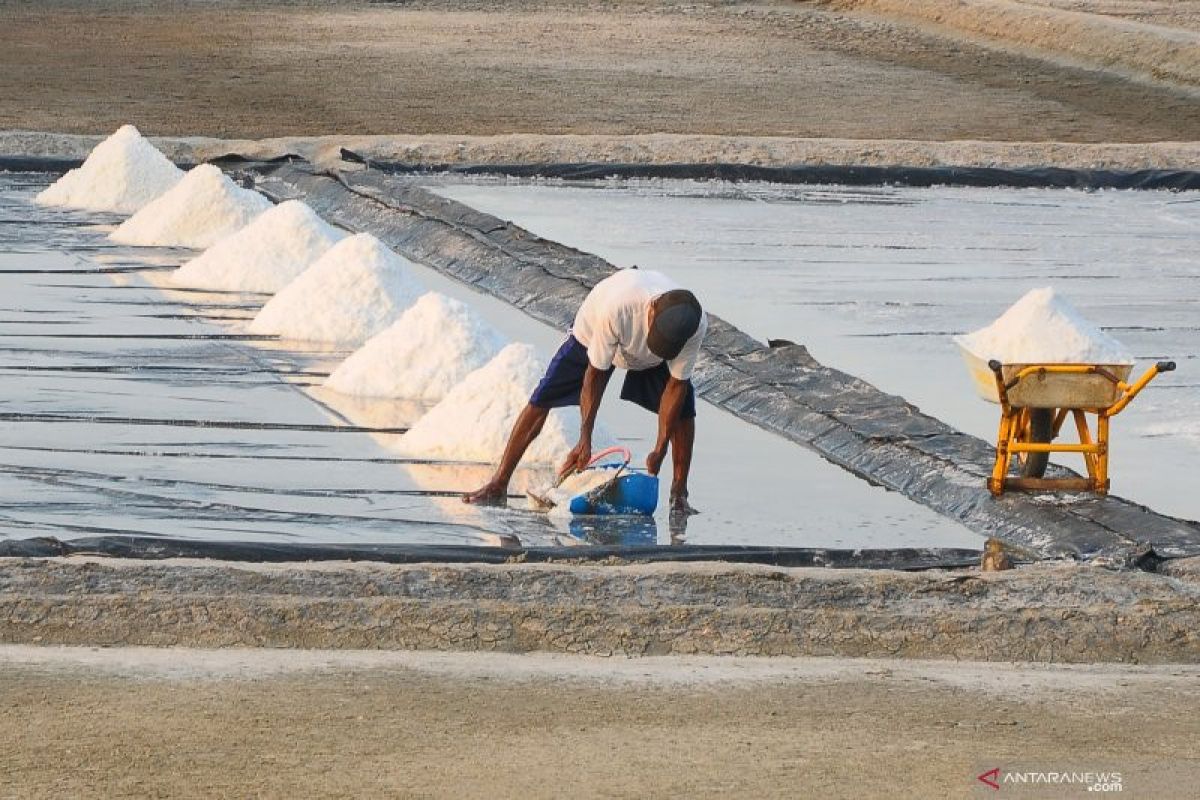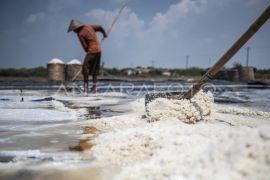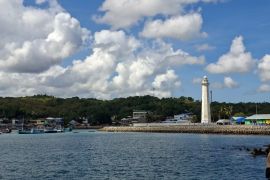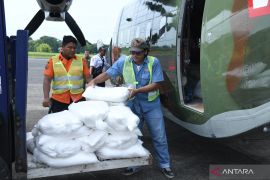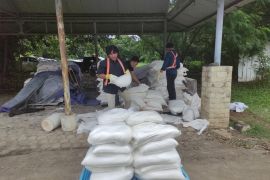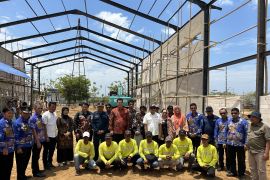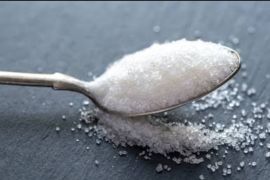"Data collection should be submitted to the Central Statistic Bureau (BPS), or a National Repatriation Commission should be formed as it was done in India," Halim said on Thursday.
According to him, a special salt commission, responsible for carrying out data collection, will deal with accurate data problems, one of which is by working with BPS.
The commission was also responsible for fulfilling the basic rights of salt farmers, running a program of self-sufficiency in industrial salt and consumption, and evaluating the various programs mentioned, he continued.
Regarding salt data, he proposed that the first audit should be carried out on the implementation of salt imports until the end of 2018, and the results should be presented to the public.
As proclaimed, the Ministry of Maritime Affairs and Fisheries (KKP) calls for accurate data related to supply and demand for salt to be the main key in the commodity import policy.
The ministry`s Director of Sea Space Management (PRL) Brahmantya Satyamurti Poerwadi remarked that in addition to production data and accurate needs, the accuracy of the classification of salt requirements for the manufacturing industry is also needed.
According to him, with an accurate classification of industrial salt needs, it would be easier to find a substitute for imported salt, which had been used by the manufacturing industry.
Previously, the Ombudsman of the Republic of Indonesia stated that a systemic improvement related to import policy, which was a synergy between the ministries and institutions in the future, would reduce salt imports in 2019.
"The Ombudsman will boost the salt commodity. Salt imports have soared in 2018," RI Ombudsman member, Ahmad Alamsyah Siregar, revealed at a press conference.
According to Siregar, domestic salt prices experienced an unnatural surge in mid-2017, which was followed by a high import policy at the beginning of the year, with import agreements reaching 3.7 million tons.
The Ombudsman, he added, had found several import maladministration in 2018, including the import decision of 3.7 million tons, which was not accompanied by recommendations from the Minister of Maritime Affairs and Fisheries, as mandated by Law No. 7/2016.
In addition, he revealed that the Ombudsman found the misuse of imported salt distribution in the 2018 period by PT MTS, where the police had taken action.
He pointed out that several ministries had begun a series of systemic improvements, and through these improvements, it is estimated that salt imports will decline in 2019.
Reporting by M Razi Rahman, Eliswan Azly
Reporter: Antara
Editor: Fardah Assegaf
Copyright © ANTARA 2019
